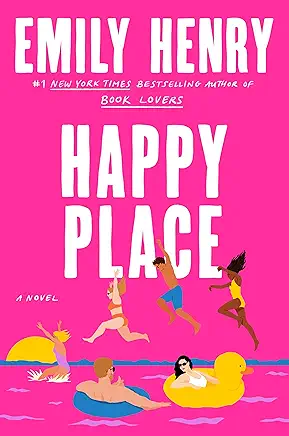
I was skeptical about Emily Henry’s latest book, Happy Place. Of course, I knew it was not the literary masterpiece I usually enjoy. Still, I have read most of Henry’s books because they provide a breather, an easy read, and help me stay up-to-date on interesting female characters the younger generations are reading. Although the word “happy” is mentioned 130 times in the book and the six main characters, who were friends in college and now meeting for their yearly “happy” Maine vacation with their significant others, I didn’t get the impression that any of them were particularly happy.
Harriet, the most developed character, was probably the least happy. She and her fiance, Wyn, had broken up months before this week in Maine, and they were pretending to be together so they didn’t have to discuss their breakup with the friend group. Henry did a good job illustrating how the friends grew up and apart. She also demonstrated how important it is to be in touch with oneself and avoid the pretensions of college expectations.
I enjoyed other aspects of the characters. Henry did a great job emphasizing the importance of forgiveness in relationships. Also, she successfully delved into the question of who feels more like family: blood relatives or long-time friends. Henry additionally showed strength in conveying that people carry communication patterns from their families into adult relationships.
My favorite quote that comes late in the book but is not a spoiler:
“In our families, there was no coming back from fights. Her dad would rather divorce than apologize, and in my house, arguments always ended with everyone leaving. Things never got resolved; they calloused over.” (p. 352). It is incredible to some of these characters that in other families, there are disagreements and resolutions.


